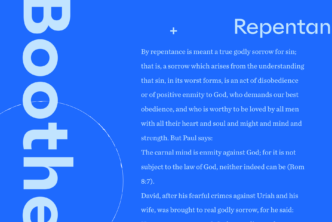Christian worship is big business. From Christian radio stations to massive international tours to the entire Christian recording industry, worship is no longer confined within church walls; it has a global reach.
But what does Scripture teach us about proper Christian worship? And how might this teaching speak to contemporary Christian worship?
In the following excerpt from the Logos Mobile Ed course NT221 The Wisdom of John, renowned New Testament scholar Dr. Ben Witherington III explains the single most important feature of proper Christian worship.
Theocentric worship
One of the problems I come across in the church all too often is that Christian persons are not taught how to properly worship God. And, indeed, they’re not even taught about the theological and ethical character of worship. So we need to talk about this, even if just briefly.
The first thing to be said about proper and true Christian worship—worship done in Spirit and in truth as Jesus asks for in John 4—is that it should be theocentric. The focus of worship should not be on human beings, not on the pastor [and] not on the congregation. It should be about the worship of God. And if you think of the major elements in worship—we have prayer, we have hymns sung in praise to God, we have offerings—almost all the elements of worship are theocentric in their direction: they are directed upward toward God. And all of the congregation is supposed to be caught up in love and wonder and praise of God.
The function of music in worship is not to entertain the masses or to give them a good buzz—though if that’s a byproduct, that’s nice—but the function of the music is so that the whole person, both the cognitive part of the person and the affective part of the person in their emotions, are all directed toward and worshiping God, so that the whole person is caught up in love and wonder and praise of God.

What’s in it for me?
Unfortunately, what’s happened in the modern church is that, increasingly, people have taken a consumer approach to worship. And what they’ve evaluated churches by is whether “I get anything out of it” or not.
In my home congregation, there was a little old lady who was deaf . . . but she was there every Sunday worshiping God with these gigantic hearing aids and very thick glasses. On her same pew—because as you know, many are called and pews are chosen—every week on the same pew, there was a young lady who saw this little old lady and couldn’t understand why she was there because it didn’t seem like she was getting much out of what was happening. So, after one worship service, she asked the old lady, “Ma’am, if you don’t mind me asking, why are you here since you can get so little out of this?” The old lady stood up tall, all five-feet-two of her, and said, “Young lady, I am not here primarily for what I can get out of this but for giving worship to God. I have the bulletin sent to me during the week. I get out my magnifying glass and my large print Bible. I read the Scriptures that will be used during the worship service and the hymns that will be sung. I think and meditate on these things, and though it’s true, now I get less out of the worship than I used to, that’s not the primary function of worship for me. I come to give honor and praise and glory to God. That’s what worship is about.”
The young lady was stunned. She’d been caught up in the consumer approach, the narcissistic, self-centered approach to worship. It had never dawned on her that the first question to ask is “Where may I best serve God? Where could I best be involved in giving God His praise and worship? Where am I most needed to serve God, in what particular house of worship?”
Entertainment and performance
The second thing that I would say about worship that we need to understand is that it’s not intended to be entertainment. It’s not about the performance of the few on the platform for the couch potatoes for Jesus in the pews. It is supposed to be congregational worship, focused on God. The one element in the worship service that is not theocentrically directed is when God speaks to us, when we hear His word and then the word is proclaimed. That’s actually the one element that is anthropocentric—when God speaks to us and then we respond in whatever way that we do. But the basic function of worship is the exaltation of God and the being caught up in congregational worship. It’s not the same thing as fellowship. Worship is one thing, fellowship is another.
I like what Tom Skinner says: “Fellowship is a bunch of fellows in the same ship. It’s a horizontal experience between believers.” That’s what fellowship is. Worship is not intended to be fellowship. It’s intended to be Godwardly directed and focusing on God, as the author of Rev 4 makes very clear indeed.
***
Get Dr. Witherington’s course for practical, in-depth study
Not only does The Wisdom of John course offer practical teaching on Christian worship, as well as how to address church problems for a biblical resolution, this course offers in-depth analysis of genre, history, and key themes from the entire Johannine corpus. Get it now!
If you want to learn how courses work in Logos before picking up The Wisdom of John, start with this month’s free course. It’s a survey of 2 Timothy taught by Dr. Kenneth Waters and completely free to you—as long as you get it in August! Whether you’re studying 2 Timothy on your own or you’re preparing for a Bible study, you can find seminary-level insights without dropping a dime.






